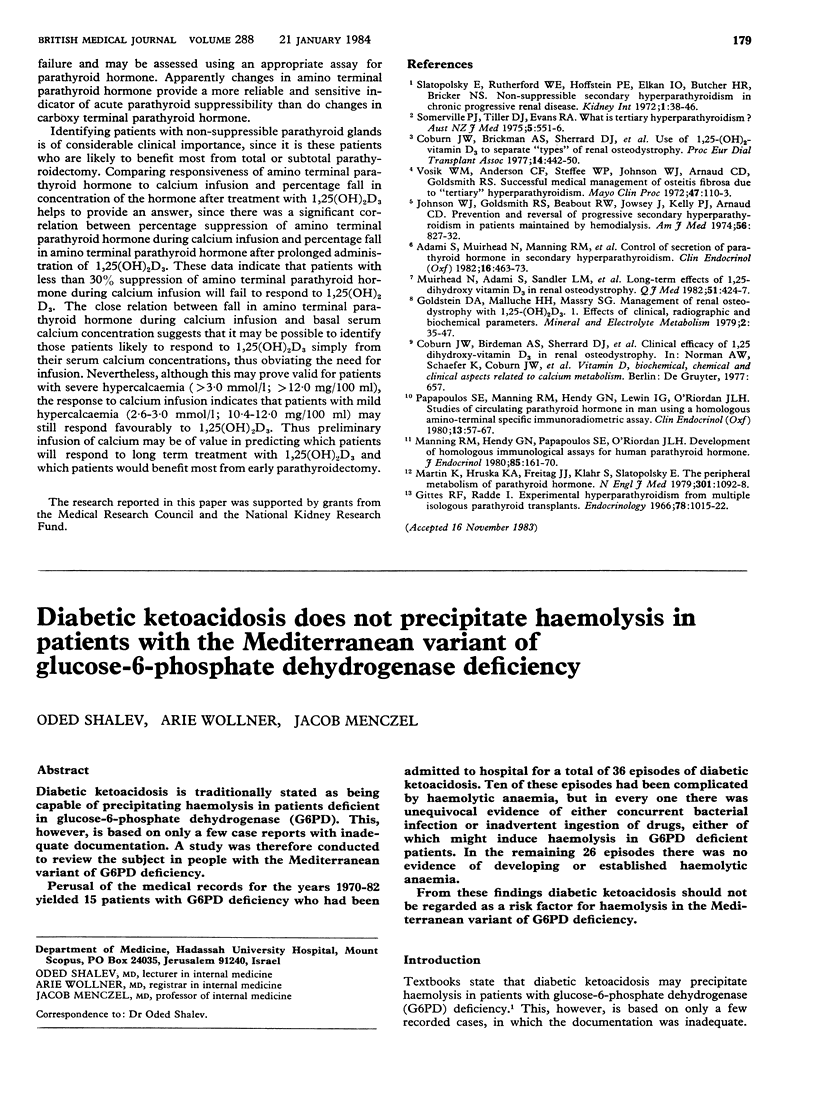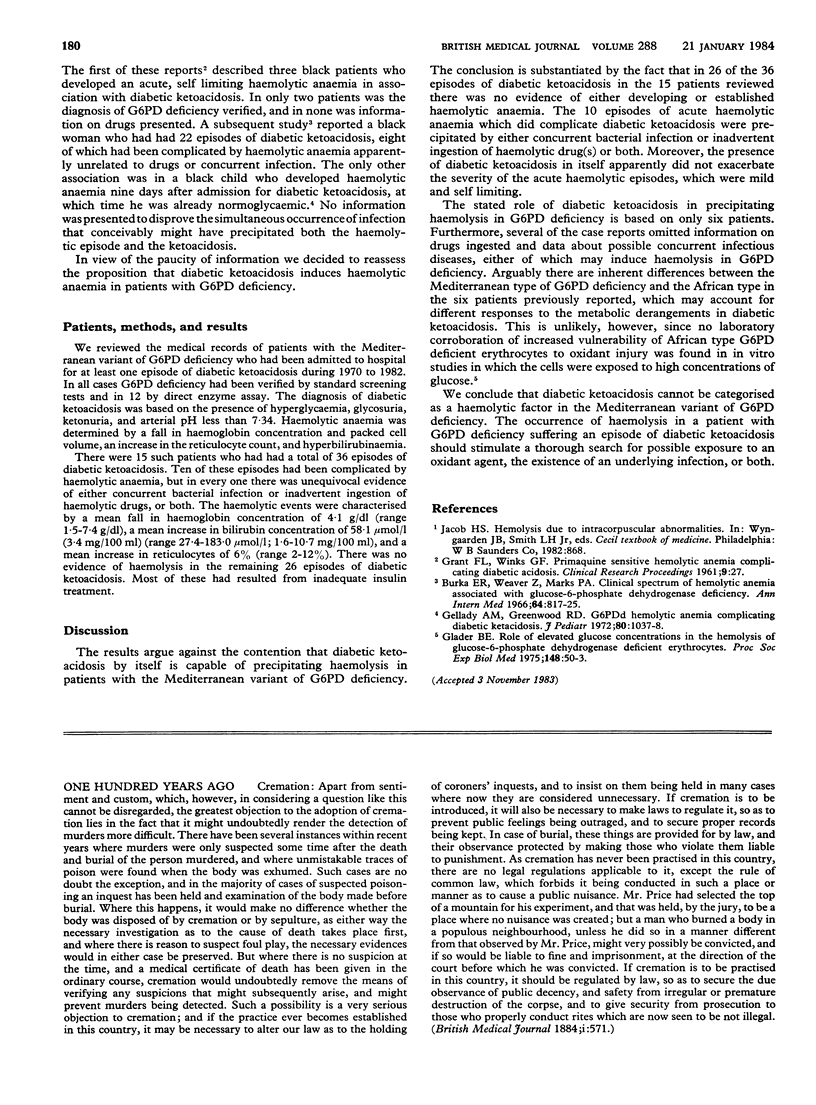Abstract
Diabetic ketoacidosis is traditionally stated as being capable of precipitating haemolysis in patients deficient in glucose-6-phosphate dehydrogenase (G6PD). This, however, is based on only a few case reports with inadequate documentation. A study was therefore conducted to review the subject in people with the Mediterranean variant of G6PD deficiency. Perusal of the medical records for the years 1970-82 yielded 15 patients with G6PD deficiency who had been admitted to hospital for a total of 36 episodes of diabetic ketoacidosis. Ten of these episodes had been complicated by haemolytic anaemia, but in every one there was unequivocal evidence of either concurrent bacterial infection or inadvertent ingestion of drugs, either of which might induce haemolysis in G6PD deficient patients. In the remaining 26 episodes there was no evidence of developing or established haemolytic anaemia. From these findings diabetic ketoacidosis should not be regarded as a risk factor for haemolysis in the Mediterranean variant of G6PD deficiency.
Full text
PDF

Selected References
These references are in PubMed. This may not be the complete list of references from this article.
- Gellady A. M., Greenwood R. D. G-6-PD hemolytic anemia complicating diabetic ketoacidosis. J Pediatr. 1972 Jun;80(6):1037–1038. doi: 10.1016/s0022-3476(72)80024-6. [DOI] [PubMed] [Google Scholar]
- Glader B. E. Role of elevated glucose concentrations in the hemolysis of glucose-6-phosphate dehydrogenase deficient erythroycytes (38474). Proc Soc Exp Biol Med. 1975 Jan;148(1):50–53. doi: 10.3181/00379727-148-38474. [DOI] [PubMed] [Google Scholar]


